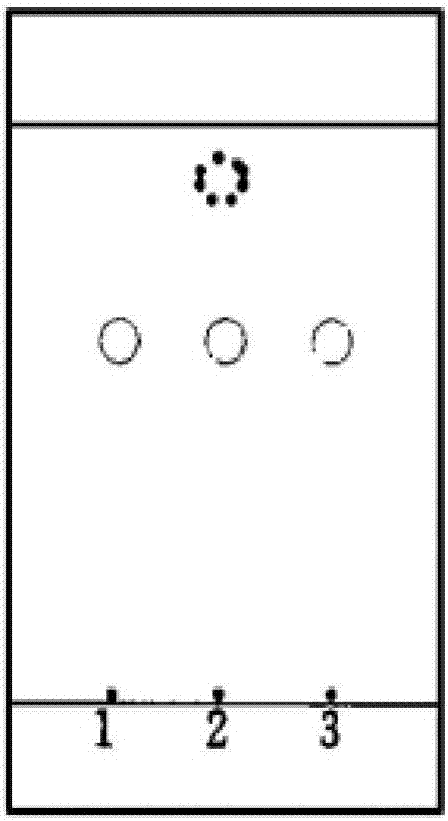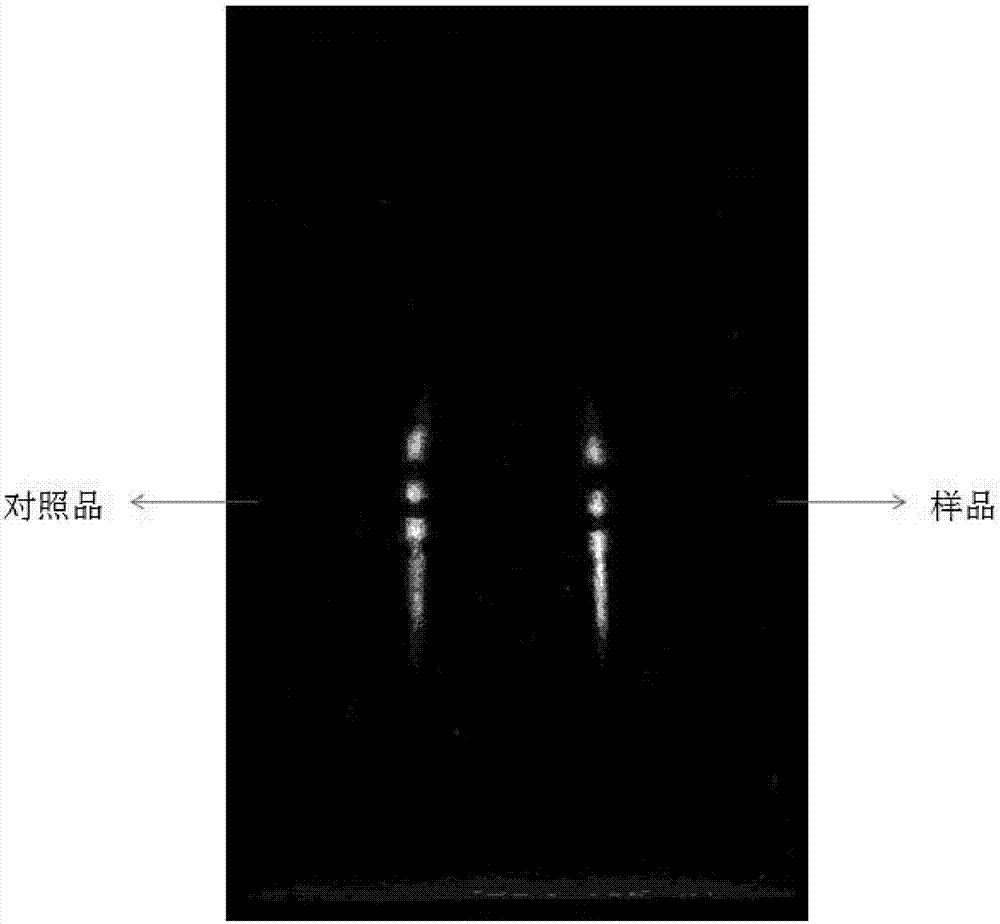A method for identifying active ingredients in ginkgo biloba preparations
An active ingredient, ginkgo biloba technology, applied in the field of drug analysis, can solve the problems of inability to judge the accuracy of identification, no spectrum proof, tailing, etc. Moderate effect
- Summary
- Abstract
- Description
- Claims
- Application Information
AI Technical Summary
Problems solved by technology
Method used
Image
Examples
Embodiment 1
[0031] The identification method of the active ingredient of embodiment 1 ginkgo biloba preparation
[0032] (1) Preparation of the test product: Take an appropriate amount of ginkgo biloba preparation to be tested (approximately equivalent to 48 mg of total flavonol glycosides), add 15 ml of n-butanol to extract, soak in temperature for 15 minutes and shake from time to time, let cool, filter, and the filtrate is evaporated Dry, add 2ml of ethanol to the residue to dissolve it, and use it as the test solution;
[0033] (2) Preparation of reference substance: take an appropriate amount of ginkgo biloba reference preparation (about 0.2mg), add 15ml of n-butanol to extract, soak in temperature for 15 minutes and shake from time to time, let cool, filter, evaporate the filtrate to dryness, add 2ml of ethanol to the residue to make Dissolved as a reference substance solution;
[0034] (3) Thin-layer chromatography: absorb 3 μ l of the test solution and the reference solution, and...
Embodiment 2
[0036] The identification method of the active ingredient of embodiment 2 ginkgo biloba preparation
[0037] In this example, the conditions of thin-layer chromatography were changed to: sample volume is 10 μl, developer is ethyl acetate-isopropanol-methanol-water=4:9:0.5:2, color developer is 5% Aluminum trichloride ethanol solution, all the other identification steps refer to Example 1.
[0038] The inspection results clearly showed 3 spots.
Embodiment 3
[0039] The identification method of the active ingredient of embodiment 3 ginkgo biloba preparation
[0040] In this example, the conditions of thin-layer chromatography were changed to: sample volume is 1 μl, developer is ethyl acetate-isopropanol-methanol-water=1:6:1:1, color developer is 1% Aluminum trichloride ethanol solution, all the other identification steps refer to Example 1.
[0041] The inspection results clearly showed 3 spots.
PUM
 Login to View More
Login to View More Abstract
Description
Claims
Application Information
 Login to View More
Login to View More - R&D
- Intellectual Property
- Life Sciences
- Materials
- Tech Scout
- Unparalleled Data Quality
- Higher Quality Content
- 60% Fewer Hallucinations
Browse by: Latest US Patents, China's latest patents, Technical Efficacy Thesaurus, Application Domain, Technology Topic, Popular Technical Reports.
© 2025 PatSnap. All rights reserved.Legal|Privacy policy|Modern Slavery Act Transparency Statement|Sitemap|About US| Contact US: help@patsnap.com



